Skip to main contentProvenanceThe artist
Emiliano (the printer) and Barbara Sorini, New Jersey
Terra Foundation for American Art, Chicago, Illinois, 2004
Exhibition HistoryPublished References
William Gropper
(American, 1897 - 1977)
Cartoon Warmonger
1965
Etching, open bite and lift ground on wove paper
Image: 11 7/8 x 15 3/4 in. (30.2 x 40 cm)
Sheet: 18 7/8 x 23 1/8 in. (47.9 x 58.7 cm)
Sheet: 18 7/8 x 23 1/8 in. (47.9 x 58.7 cm)
Credit LineTerra Foundation for American Art, Gift in memory of Emiliano Sorini, printmaker
Object number2004.9
SignedIn graphite, lower right beneath plate: Gropper; lower right in plate: Gropper
InterpretationMade during America's controversial involvement in the Vietnam War, William Gropper's etching Cartoon Warmonger presents the upper bodies of two monstrous men like a pair of ferocious cats, their open mouths filled with sharp teeth, about to devour a horde of tiny people, many bearing protest signs. The torso of one of the gigantic, grotesque warmongers appears to dissolve into flames at the upper left. The crowd of victims trails into the distance as a series of white dots at the upper right; escape from the voracious forces of destruction seems hopeless. Indeed, some of the war protesters have already fallen, while others stand and gesture helplessly.
For decades William Gropper used his talents as a political cartoonist and artist to attack injustice in his paintings, drawings, and lithographs. Late in his career he resumed etching, in which he had worked in the early 1920s. For this and many other etchings, the artist worked with master printer Emiliano Sorini, whose "ES" chop mark appears on this impression. Exploiting several intaglio techniques, Gropper used an acid-resisting substance to draw the miniature figures so they would appear outlined in white in the final print. He made coarse, thick lines to render the horrifying features of the vicious predators. With the techniques known as lift ground and open bite, he created the smoky tonal areas of shading. This impression is an example of the print's first state, printed before he corrected the uneven tones and lines, but it still powerfully visualizes the artist's social outrage at the nightmare of war. In using printmaking to protest war and politically motivated violence, as seen here and in his Strike Breakers (TF 2004.10), Gropper followed a venerable tradition in the graphic arts.
For decades William Gropper used his talents as a political cartoonist and artist to attack injustice in his paintings, drawings, and lithographs. Late in his career he resumed etching, in which he had worked in the early 1920s. For this and many other etchings, the artist worked with master printer Emiliano Sorini, whose "ES" chop mark appears on this impression. Exploiting several intaglio techniques, Gropper used an acid-resisting substance to draw the miniature figures so they would appear outlined in white in the final print. He made coarse, thick lines to render the horrifying features of the vicious predators. With the techniques known as lift ground and open bite, he created the smoky tonal areas of shading. This impression is an example of the print's first state, printed before he corrected the uneven tones and lines, but it still powerfully visualizes the artist's social outrage at the nightmare of war. In using printmaking to protest war and politically motivated violence, as seen here and in his Strike Breakers (TF 2004.10), Gropper followed a venerable tradition in the graphic arts.
Emiliano (the printer) and Barbara Sorini, New Jersey
Terra Foundation for American Art, Chicago, Illinois, 2004
Exhibition History
Terra Collection-in-Residence, Ashmolean Museum of Art & Archaeology, Oxford, United Kingdom, September 15, 2022–September 30, 2026.
Sorini, Emiliano. Gropper - Catalogue Raisonné of the Etchings. San Francisco: Alan Wofsy Fine Arts, 1998. No. 90, p. 90 (first state).











